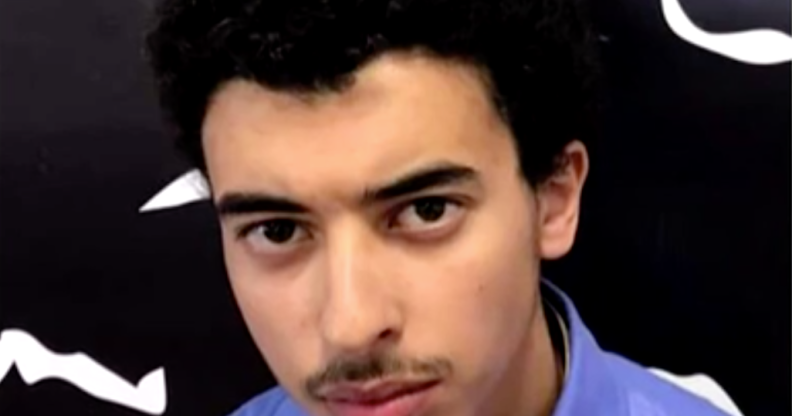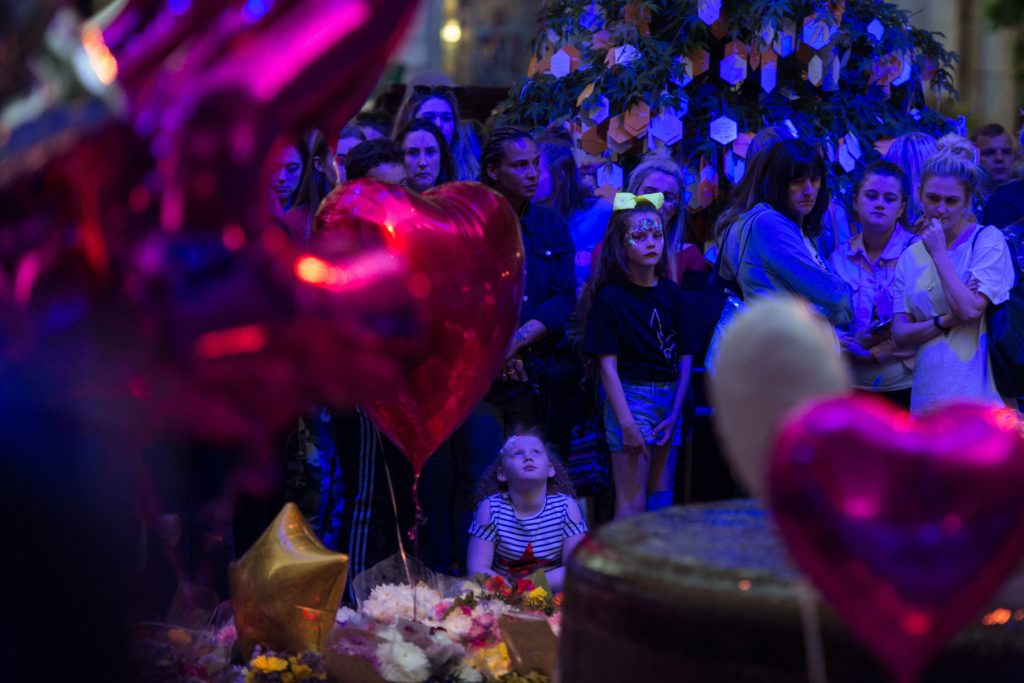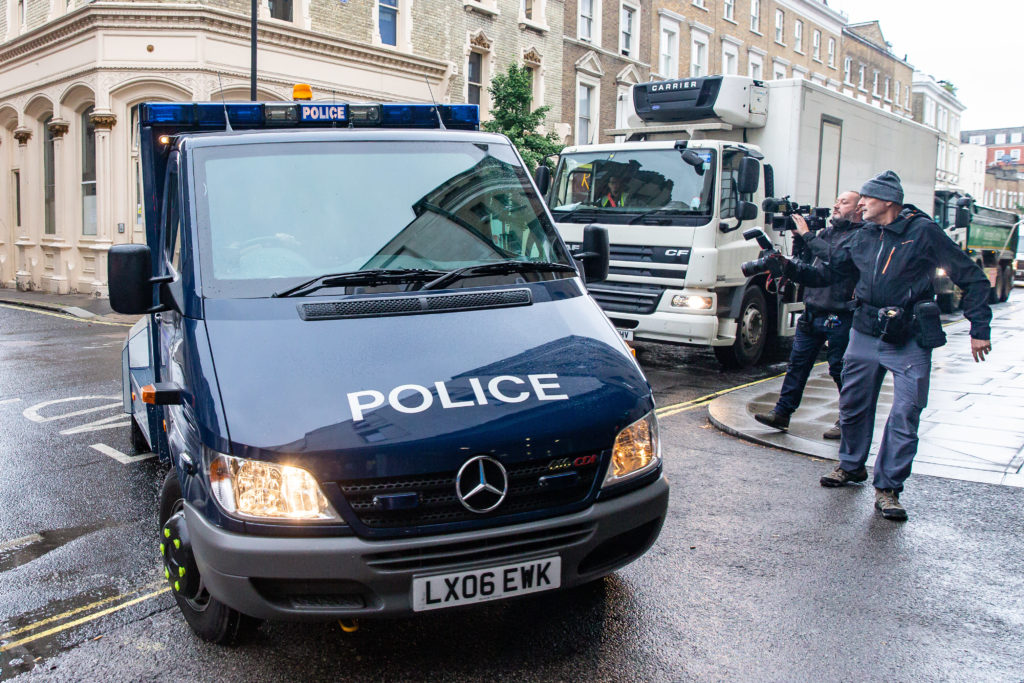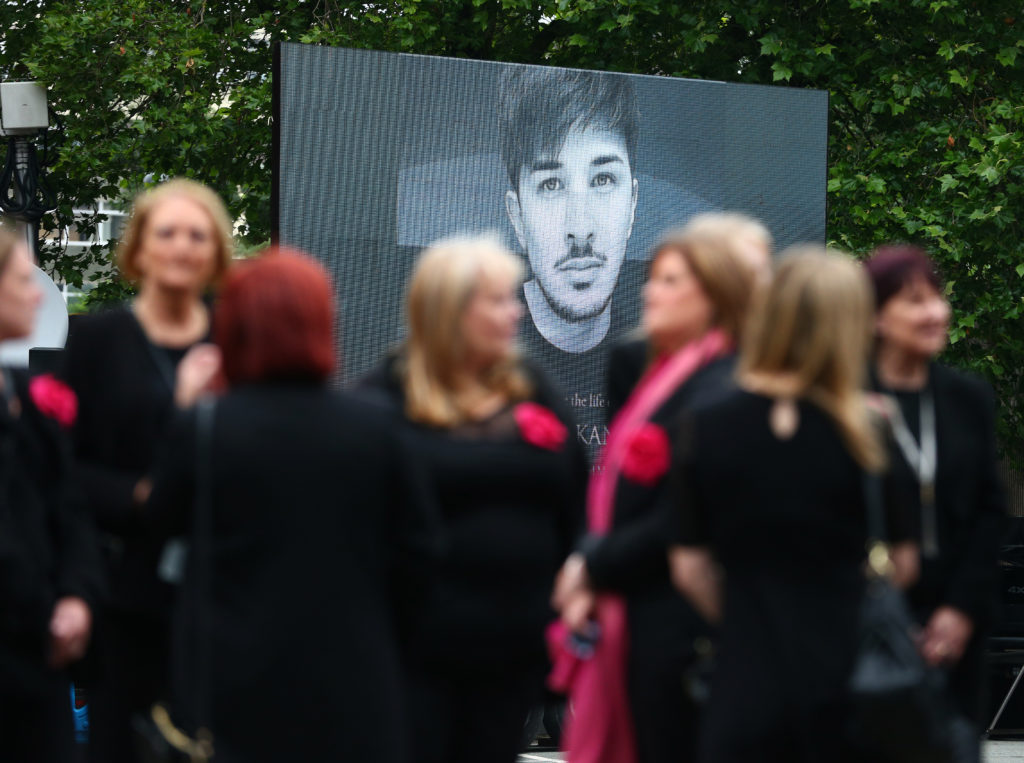Brother of Manchester bomber found guilty of murdering 22 innocent people in Ariana Grande terror attack

Hashem Abedi, 22, was found guilty of murdering 22 people. Prosecutors said he was “just as guilty” as his brother. (Screen capture via ITV)
The brother of the Ariana Grande Manchester Arena bomber has been found guilty of 22 charges of murder.
Hashem Abedi, 22, was found to have conspired with his brother Salman Abedi, who died by suicide after he detonated a bomb at an Ariana Grande concert in May 2017.
The trial at the Old Bailey, London, heard that while he was not present at the time of the explosion, Hashem’s fingerprints and DNA were found in the residences in the northwest city where they both made the bomb.
Hashem had denied the charges and attempted to distance himself from Salman, British authorities said, in the years after the attack, Sky News reported Tuesday afternoon.
What happened?
In the days after the explosion, law enforcement combed the scene and found that the shrapnel gathered in the blast site was made with forethought and care.
Shreds of a blue Karrimor backpack carried by the Manchester bomber and nuts and bolts found by officers suggested its improvised design which, courts heard, the brothers sourced the materials together of.
Courts were told that Hashem was involved in the research, experimentation and making of the explosives before returning to Libya a month before the attack.

People pay their respects during a ceremony in central Manchester one year one since an Ariana Grande concert ended in tragedy. (OLI SCARFF/AFP via Getty Images)
Hashem’s legal counsel offered no evidence in his defence. He later fired his team in the trial’s closing stages.
Prosecutors said he was “just as guilty” as his brother, as the Manchester-born siblings stood “shoulder-to-shoulder” in the plot.
The gruelling seven-week trial offered some relief to family members of victims who burst into tears as the reading was made.
British police: ‘That this was a two-man job.’
Max Hill, the Crown Prosecution Service director of public prosecutions, told Sky News that prosecutors and police looked at “every movement these men made”.
“The cars that they used, the telephones that they swapped, the places that they lived, the shopping trips that they went on themselves, or asked others, who didn’t know their plans, to go on for them, all of those circumstances built up into an unanswerable case,” he said.

A Police van carrying Hashem Abedi the younger brother of Manchester Arena bomber Salman Abedi arrives at Westminster Magistrates’ Court on July 18 2019 in London, England. (Luke Dray/Getty Images)
“That this was a two-man job. These men planned it together and obviously, tragically, it only took one man to blow up the device and kill so many people.”
He continued: “This was a long investigation, it required extradition for the first time from Libya to this country.
“And speaking for everyone in the CPS and every GMP officer who was involved we were all determined to give a sense of justice to all of those families who suffered in May 2017.”
What happened in Manchester that night?
In was an evening beginning with a flourish of pink balloons dropping from the rafters that ended with traumatised parents screaming as they searched for their children in the heaving crowds.
Panic and mayhem seized the crowds at Manchester Arena as the blast reverberated through the building. Adoring fans of the then 23-year-old pop star were rushed to six hospitals nearby in what witnesses described as a “horror movie”.
Around 264 concert-goers were wounded and 22 – including Martyn Hett, a gay man – died, some aged as young as eight.
Around 670 concert-goers have reported psychological trauma as a result.

A screen displaying an image of Martyn Hett outside Stockport Town Hall as mourners arrive for his funeral. (Dave Thompson/Getty Images)
But years since the ordeal – considered by many to be the most deadliest episode of terrorism in Britain since the 2005 7/7 bombings – and Hett’s mother has tirelessly campaigned for tighter, stricter policy around public venue security.
Her advocacy proved successful this year after security minister James Brokenshire announced that Martyn’s law will be introduced.
The measures could include increased physical security, training, incident response plans and exercises for staff on what to do during an attack.

